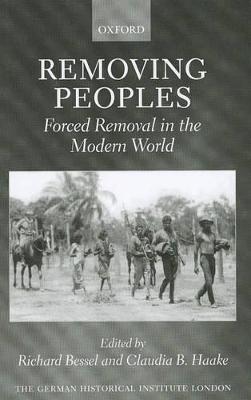Studies of the German Historical Institute London
1 total work
Removing Peoples
Published 9 April 2009
One of the terrible and tragic themes of modern history is the forced removal of millions of human beings. The causes, course, and consequences of the removal of peoples from their homes form a central theme in the history of the modern world. While removing people from their homes by force did not begin suddenly in the nineteenth century, the combination of the development of a global (capitalist) economy, of modern race-thinking, of world wars, of the triumph of
popular and national sovereignty, and of new technological means of physically uprooting and transporting peoples has given this phenomenon a quantitatively and qualitatively new character.
Removal has been a global phenomenon, and therefore this volume treats it within the frame of world history and international comparison. Examples discussed range from the United States in the 1830s to the expulsion of pied noir settlers from Algeria in the 1960s. A number of factors reshaped the older practices of forced migration and helped to make the removals discussed in this volume distinctly 'modern'. These include the use of modern apparatuses of administration, communication, and
coercion, as well as warfare based on modern technology and organization.
popular and national sovereignty, and of new technological means of physically uprooting and transporting peoples has given this phenomenon a quantitatively and qualitatively new character.
Removal has been a global phenomenon, and therefore this volume treats it within the frame of world history and international comparison. Examples discussed range from the United States in the 1830s to the expulsion of pied noir settlers from Algeria in the 1960s. A number of factors reshaped the older practices of forced migration and helped to make the removals discussed in this volume distinctly 'modern'. These include the use of modern apparatuses of administration, communication, and
coercion, as well as warfare based on modern technology and organization.
